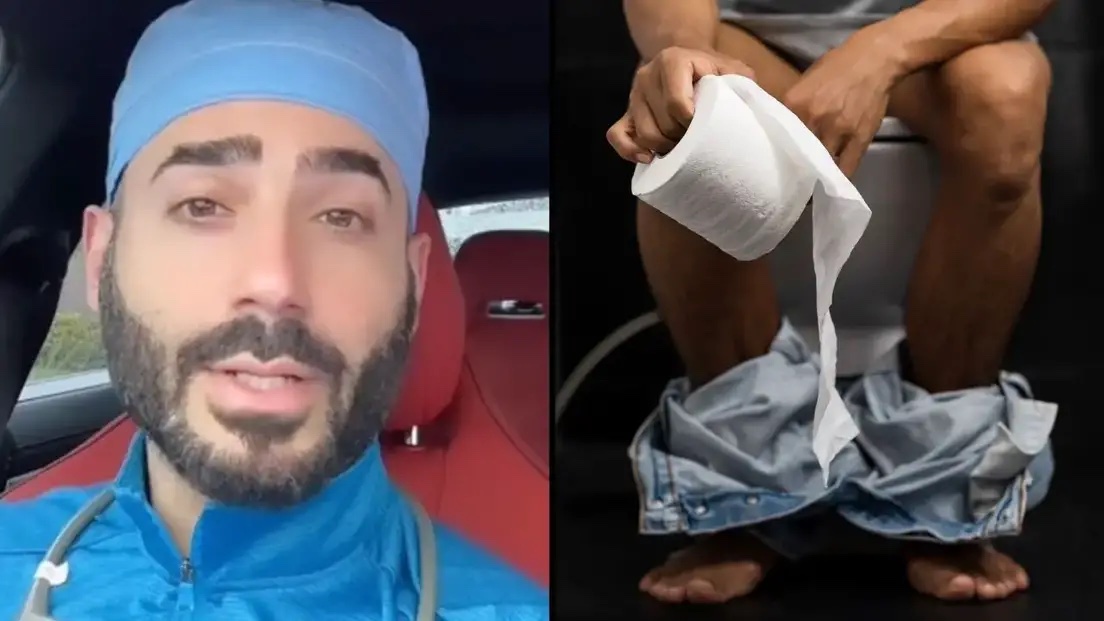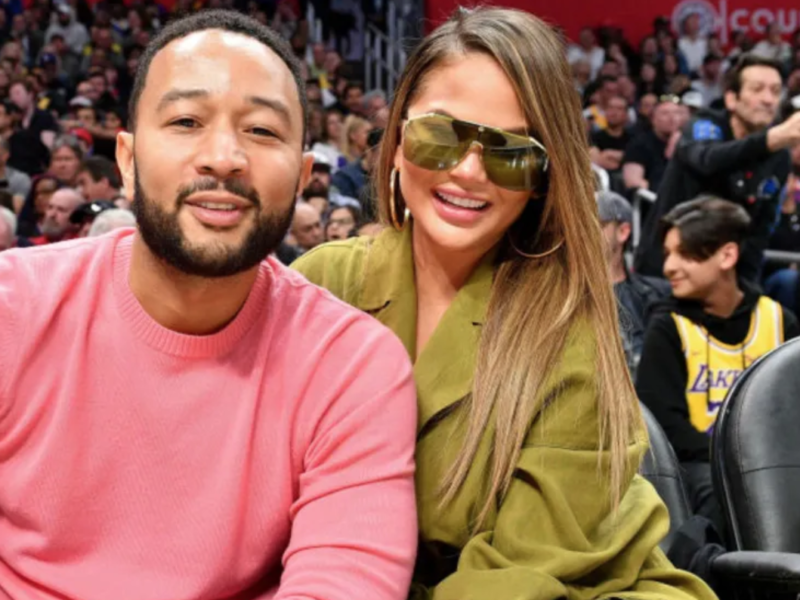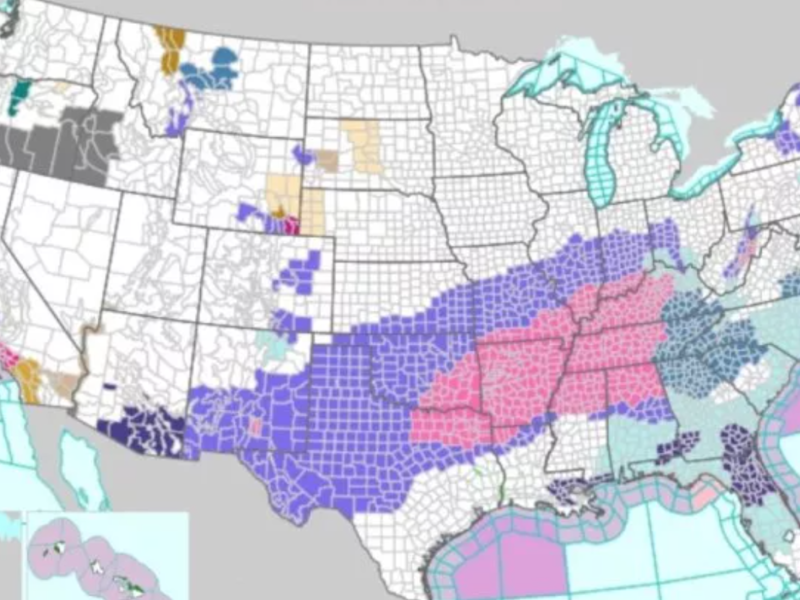A doctor has shared some shocking information for anyone who always needs to poo immediately after eating.
Recent findings have shown that feeling the need to rush to the bathroom right after eating has specific causes.
Dr. Joseph Salhab explains in a TikTok video that: “It’s not because food is moving instantly throughout your GI tract.”
So, what’s really happening?

The internet has been left shocked after finding out.
One writes: “This makes so much sense!”
Another agrees: “This changes everything.”
“Wow, my whole life has been a lie,” another laughs.
The doctor first explains that the various ways your pooping habits can be a good indicator of general health.
For example, irritable bowel syndrome (IBS) may cause a person’s digestive tract to move food more quickly than normal.
Other conditions that might speed up stool passage include food allergies, intolerances, anxiety, gastritis, celiac disease, inflammatory bowel disease (IBD), and Crohn’s disease.
These conditions may cause an urgent need to poop soon after eating, and may also lead to other digestive symptoms, such as bloating, frequent gas, abdominal pain or discomfort, mucus in the stool, diarrhea, constipation, or alternating between diarrhea and constipation.

Another cause of the urge to poop could be fecal or bowel incontinence, which can range from mild to complete loss of bowel control.
Fecal incontinence can happen at any time, not just after eating.
It may develop due to several factors, such as diarrhea, nerve damage in the rectum, damaged rectal muscles, damaged rectal walls, rectocele, or rectal prolapse.
Those who suspect they may have fecal incontinence should consult a doctor for a diagnosis and to discuss treatment options.
Diarrhea following a meal can also be common and often short-lived, but if it lasts a week or longer, it could point to a more serious health concern.
Common causes of persistent diarrhea include overconsumption of artificial sweeteners and laxatives, foodborne bacteria and parasites, food intolerances, food allergies, digestive disorders, viral infections, and previous abdominal surgeries, such as gallbladder removal.

However, aside from these more serious conditions, Dr. Salhab also draws attention to another major reason you may need to poop immediately after eating.
The gastroenterologist clarifies, “When you eat and you feel like you have to use the restroom right after, this is something called the gastrocolic reflex.”
The gastrocolic reflex is a normal, involuntary reaction to food entering the stomach, per Medical News Today.
This reflex doesn’t mean that the food is immediately passing through the body.
Typically, it takes about 1–2 days for food to travel through a person’s digestive system.
Therefore, when someone feels the need to poop shortly after eating, they are likely passing food consumed a day or two earlier.
The gastrocolic reflex, also known as the gastrocolic response, is a normal and automatic reaction to food entering the stomach.
When this happens, the body releases a hormone that makes the colon contract.
These contractions push previously consumed food further along the digestive tract, which can lead to an urge to pass stool.
For many, this reflex is mild and causes no symptoms.
However, for others, it can be quite strong, leading to a significant urge to poop after eating.

Typically, about 20-30 minutes after eating, the stomach stretches, sending signals to the brain that it’s full.
Dr. Salhab elaborates: “Your colon begins to contract to make more room for the food,” which can lead to an urgent need to use the bathroom, particularly after breakfast.
This reflex doesn’t mean the food you just ate is passing through you right away; rather, you’re mainly expelling old stool and water.
People with irritable bowel syndrome (IBS) may experience this reflex more intensely.
Dr. Salhab noted that those with IBS might experience severe abdominal pain, cramping, or even diarrhea after meals.
“The contractions of the colon can be very powerful,” for people with IBS, he says.
For those experiencing similar symptoms, the gastroenterologist suggests trying a low FODMAP diet.
He also mentions that certain foods and drinks, like fizzy drinks, sugary beverages, alcohol, dairy, fried foods, and some citrus fruits, might exacerbate the symptoms, although individual experiences can vary.
Though the gastrocolic reflex is a natural response to food, intense and frequent reactions, or diarrhea lasting more than two days, might suggest an underlying health issue, necessitating a visit to a healthcare professional.

So, to sum it up, feeling the need to poop immediately after eating is generally caused by the gastrocolic reflex, a normal bodily reaction to food entering the stomach.
While nearly everyone experiences this reflex occasionally, its intensity can vary.
Certain lifestyle adjustments can help reduce the urge to poop after meals.
However, if someone frequently experiences diarrhea or other digestive symptoms after eating, it may indicate an underlying health problem that needs medical attention.

James Anderson is a seasoned journalist and the primary author of many articles on usaunfiltered24.com. With a keen eye for current events and trends, James has built a reputation for delivering timely, insightful content on a wide range of topics, from breaking news to popular culture. His ability to simplify complex issues and present them in an engaging way has made him one of the go-to writers for readers seeking reliable information. With years of experience in the media industry, James is known for his thorough research and commitment to providing readers with accurate and up-to-date news, making him a trusted voice in the world of journalism.


